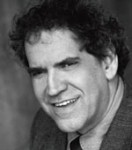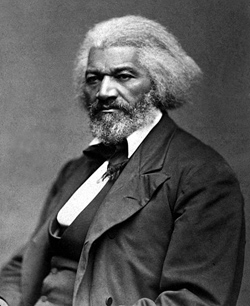By Rabbi Michael Leo Samuel


(Photo: Wikipedia)
CHULA VISTA, California — This past week, the American flag became a focal point as we celebrated the Fourth of July. The Wall Street Journal reported how NIKE was forced to recall a shoe that featured the “Betsy Ross” flag on the heel. Colin Kaepernick who signed a multi-million-dollar sponsorship with NIKE was upset that NIKE featured the flag, which he regarded as “offensive” because of its connection to an era of slavery. The flag could be construed as a symbol of approval for slavery, white nationalism, and white supremacy.[1]
Embarrassed, NIKE withdrew the shoe.
What a pity, I was looking forward to purchasing the shoe!
The Democratic candidates Julian Castro and Beto O’Rourke defended Kaepernick’s position.
It is a pity NIKE did not sort this potential problem out in the designing stage. They probably will lose many customers over this late decision.
On the morning of the Fourth of July, Kaepernick tweeted a quotation from one of the greatest black leaders of the Civil Rights era, Frederick Douglass. Douglass was in many respects like the Martin Luther King of his time. He was a brilliant orator; he was a moral voice of our great nation’s conscience.
Kaepernick’s excerpt from Douglass’s read, “‘What have I, or those I represent, to do with your national independence? This Fourth of July is yours, not mine…There is not a nation on the earth guilty of practices more shocking and bloodier than are the people of these United States at this very hour.’”
The speech is riveting, and in it, Douglass spoke about the growing pains of the nation; he expressed optimism that our country would grow from its bitter experiences with slavery. He mentioned how the institution of slavery challenged the sacred Bill of Rights and the moral teachings of the Constitution.
Unfortunately, Kaepernick cherry-picked the parts of the speech that reflected his personal animus toward our country’s history.
I wrote about this in my blog and I was surprised to see that Sen. Ted Cruz mentioned some of the same points I raised. Cruz noted:
You quote a mighty and historic speech by the great abolitionist Frederick Douglass, but, without context, many modern readers will misunderstand. Two critical points: This speech was given in 1852, before the Civil War, when the abomination of slavery still existed. Thanks to Douglass and so many other heroes, we ended that grotesque evil and have made enormous strides to protecting the civil rights of everybody.
Douglass was not anti-American; he was, rightly and passionately, anti-slavery. Indeed, he concluded the speech as follows: “Allow me to say, in conclusion, notwithstanding the dark picture I have this day presented, of the state of the nation, I do not despair of this country. There are forces in operation, which must inevitably, work the downfall of slavery. ‘The arm of the Lord is not shortened,’ and the doom of slavery is certain. I, therefore, leave off where I began, with hope. While drawing encouragement from ‘the Declaration of Independence,’ the great principles it contains, and the genius of American Institutions, my spirit is also cheered by the obvious tendencies of the age.
The Civil War took place between 1861-1865. Over 600,000 soldiers died so that slavery would disappear from our country forever. It is a pity Kaepernick never acknowledged this fact. Douglass knew that in time our country would learn valuable lessons about the evils of this institution.
But there was also something important that Cruz left out that could have strengthened his point. The citation comes from Douglass’s writings that reflect mightily about his magnanimous personality. I mentioned this letter in a Yom Kippur sermon I gave in 2017.
In a letter from Frederick Douglass to his former master, he wrote on September 3rd, 1849:
I shall no longer regard you as an enemy to freedom, nor to myself — but shall hail you as a friend to both. — Before doing so, however, I have one reasonable request to make of you, with which you will, I hope, comply. It is thus: That you make your conversion to anti-slavery known to the world, by precept as well as example.
It would be truly an interesting and a glorious spectacle to see master and slave, hand in hand, laboring together for the overthrow of American slavery. I am sure that such an example would tell with thrilling effect upon the public mind of this section. We have already had the example of slaves and slaveholders side by side battling for freedom; but we yet lack a master working by the side of his former slave on the anti-slavery platform.
You have it in your power to supply this deficiency; and if you can bring yourself to do so, you will attain a larger degree of happiness for yourself, and will confer a greater blessing on the cause of freedom, than you have already done by the generous act of emancipating your own slaves.
With the example before me, I shall not despair of yet having the pleasure of giving you the right hand of fellowship on the anti-slavery platform.[2]
In his age, Frederick Douglass was the closest thing to a modern biblical prophet who chastised a nation that had forgotten about its ethical obligations to promote, life, liberty, and the pursuit of happiness for all of its citizens.
Our country has come a long way in eradicating many—if not most—of the indecencies that led to slavery.
I will just conclude with an excerpt from a speech Douglass gave at the end of the war. His words remain today just as prophetic as they always have been.
Everybody has asked the question, and they learned to ask it early of the abolitionists, “What shall we do with the Negro?” I have had but one answer from the beginning. Do nothing with us! Your doing with us has already played the mischief with us. Do nothing with us! If the apples will not remain on the tree of their own strength, if they are wormeaten at the core, if they are early ripe and disposed to fall, let them fall! I am not for tying or fastening them on the tree in any way, except by nature’s plan, and if they will not stay there, let them fall. And if the Negro cannot stand on his own legs, let him fall also.
All I ask is, give him a chance to stand on his own legs! Let him alone! If you see him on his way to school, let him alone, don’t disturb him! If you see him going to the dinner table at a hotel, let him go! If you see him going to the ballot- box, let him alone, don’t disturb him! [Applause.] If you see him going into a work-shop, just let him alone,—your interference is doing him a positive injury. Gen. Banks’ “preparation” is of a piece with this attempt to prop up the Negro. Let him fall if he cannot stand alone! If the Negro cannot live by the line of eternal justice, so beautifully pictured to you in the illustration used by Mr. Phillips, the fault will not be yours, it will be his who made the Negro, and established that line for his government.
[Applause.] Let him live or die by that. If you will only untie his hands, and give him a chance, I think he will live. He will work as readily for himself as the white man. A great many delusions have been swept away by this war. One was, that the Negro would not work; he has proved his ability to work. Another was, that the Negro would not fight; that he possessed only the most sheepish attributes of humanity; was a perfect lamb, or an “Uncle Tom;” disposed to take off his coat whenever required, fold his hands, and be whipped by anybody who wanted to whip him. But the war has proved that there is a great deal of human nature in the Negro, and that “he will fight,” as Mr. Quincy, our President, said, in earlier days than these, “when there is a reasonable probability of his whipping anybody.” [Laughter and applause.][3]
To Colin Kaepernick, I would say that you of all people have benefited from the sacrifices many great people of our society have made during the Civil War and after the Civil War. Instead of invoking the sins of the past as though our whole country is mired in the Original Sin of slavery, remember what Douglass said that every person must stand or fall on his own merits or failings.
Invoking hatred toward our country’s flag only serves to keep the wounds of the past forever fresh.
The men who died in the Civil War deserve to be remembered why they died and why their ultimate sacrifice created a new era of possibility for everyone in our great nation.
Notes:
[1] https://www.dailywire.com/news/49067/nike-pulls-american-flag-sneaker-after-complaint-emily-zanotti
[2] The Frederick Douglass Papers: 1842-1852, pp. 391-392.
[3] http://utc.iath.virginia.edu/africam/afspfdat.html
*
Rabbi Samuel is spiritual leader of Temple Beth Shalom in Chula Vista. He may be contacted via michael.samuel@sdjewishworld.com
Pingback: Douglass would have disagreed with Kaepernick – San Diego Jewish World | Black Leaders